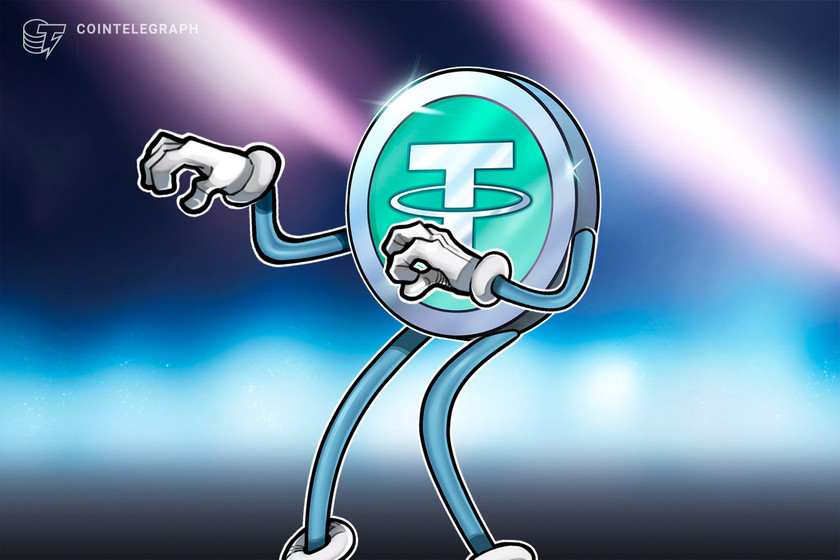The former Soviet republic of Georgia, which occupies picturesque mountain valleys and rugged ridges of the Southern Caucasus, has roughly the same population as the state of Connecticut. It is renowned as the birthplace of Joseph Stalin, as well as for being one of the oldest wine regions in the world, its rich and eclectic cuisine, and, more recently, for hosting the world’s third-largest cryptocurrency mining operation.
Additionally, an estimated 5% of the nation’s households are engaged in mining crypto or invested in it. Back in 2016, the Georgian government was the first to create an operational blockchain-powered system for property rights registration, which by mid-2018 had hosted more than 1.3 million electronic documents. State officials are now looking to move all government registries to distributed ledgers.
Sounds like crypto-buff’s dream, doesn’t it? For a small nation, though, the place in the front row of fintech pioneers comes at a cost. A single entity, the US-based blockchain software and hardware provider Bitfury, is responsible for much of Georgia’s current crypto momentum. Cheap electricity and lax regulation were the selling points that attracted the mining giant to the Alazani valley; being able to negotiate tax exemptions and secure favorable loan terms made it stick around. Critics surmise that it took Bitfury striking a backroom deal with some of the most powerful people in the country to win these privileges, and now the arrangement benefits a very narrow circle of stakeholders while threatening the nation’s energy security.
The warm welcome
Bitfury Group was founded in 2011 by a Latvian entrepreneur Valery Vavilov, whose bio on the company’s website mentions his first-hand experience with the “challenges resulting from the collapse of the Soviet Union.” Although the company is incorporated in San Francisco, the natives of the post-Soviet space are heavily represented among its leadership. Apparently, Bitfury’s С-suite were quite familiar with both challenges and opportunities that the region presents, as well as with ins and outs of doing business in the area.
Vavilov first arrived in Georgia to talk business in 2013; in July 2014, Bitfury’s first 20 megawatt data center emerged in the eastern Georgian city of Gori. In December of the following year, a major expansion nearly tripled the company’s mining capacity in the country, as Bitfury deployed its 16 nm ASIC chips at a new facility in the area called Gldani, within the capital Tbilisi city limits. This outpost became the first resident of the newly developed Free Industrial Zone, which was designed to attract technology companies by perks such as an exemption from the 18% VAT. The company purchased 18 hectares of land for a symbolic price of 1 lari, which amounts to a fraction of 1 USD. The new data center’s featured a new proprietary cooling technology: its computers were submerged in tanks of non-conductive fluid while racing to seal the block.
As Bitfury arrived in 2014, the Georgian Co-Investment Fund, linked to the country’s wealthiest person and former Prime Minister Bidzina Ivanishvili, provided the firm with a $10 million installation allowance. Although both Bitfury and Ivanishvili’s representatives have repeatedly stated that the loan has been repaid even before the Gldani facility opened, the rumors of the billionaire remaining one of the main beneficiaries of the project never subsided. At any rate, the two entities still maintain at least an interlocking directorate connection, as Bitfury’s board member George Kikvadze holds a senior office with the Co-Investment fund.
The relationship between the government and the mining behemoth briskly progressed, and in April 2016 Valery Vavilov and the Chairman of the National Agency of Public Registry made public their plan to create a blockchain-powered land registry system. The following year, Georgia made history in becoming the first nation to implement distributed ledger technology for securing and validating government records.
In February 2018, Bitfury announced that it was selling the Gldani data center to Chong Sing Holdings, a Hong-Kong based fintech company, citing the need to continue its “successful expansion in the Asian market of both hardware and software solutions.” However, in just a few months the facility went back under the original proprietor’s control: amid plunging prices and increasing regulatory pressures in China, Chong Sing found itself rushing to hedge the risks and cut down exposure to crypto assets. Bitfury was able to get the Gldani facility back at a discount. Despite the lingering bear market, the company still reports profit and remains bullish on Bitcoin in the long run.
The Bitcoin dream
Whether it was due to Bitfury raising the profile of the mining enterprise or people being able to figure it out regardless, the ordinary Georgians have had their fair share of the crypto craze. Hundreds of thousands of rigs joined the race before the market went steeply downhill, driving the share of mining in Georgia’s electricity bill to a staggering range between 10 and 15 percent. Despite the government’s general blockchain-friendly, low-regulation stance, toward the end of 2017 financial authorities grew concerned with the scale of the gold rush and had to remind Georgians that Bitcoin was still not a legal tender, and recommend to exercise caution when staking their livelihood on crypto.
The nation’s Bitcoin exuberance at the peak of the Great Bull Run was understandable: it seemed that the combination of the state’s openness to crypto and cheap electricity available across the board was going to bring about prosperity. The industrious folk rushed to the remote highland areas where state-subsidized electricity was available for free. A political party emerged that proclaimed its ambition to push ahead with the idea of creating a national cryptocurrency, which would allow every citizen to benefit from the country’s pool of unused resources.
Yet, with the crypto prices in free-fall, the future of rank-and-file miners looks a lot bleaker. Where Bitfury can still reap the fruits of massive economies of scale, cutting-edge technology, and tax exemptions, Bitcoin hunters with rigs in their garages are increasingly likely to find themselves unable to turn any profit. And as the crypto dream gives way to tough reality, the question looms large again: Is the model of blockchain development that Georgian leadership is pursuing sustainable in the long run?
Decentralizing the field
Georgia is small and not particularly wealthy, so offering lavish concessions to a major player in the industry that has a big promise is a defensible strategy. The choice here is not between welcoming one large firm and hosting a vibrant diverse fintech sector – it is more likely between the former and not being on the blockchain map at all. This could be “high-tech gambling,” as Gocha Tutberidze, a professor at the European University in Tbilisi, told NPR, yet this could be the only possible entry point.
Strategically, mining might not be the most rewarding of the crypto-related industries to host. This business is built on extracting resources without necessarily building lasting infrastructure, relationships, or technology that will benefit the territory when all is said and done. Energy consumption is a serious consideration, too: while electricity supply and demand must be calculated in plenty of time, crypto prices’ volatility introduces a lot of uncertainty on the demand side.
In late December 2018, Abkhazia, a contested state that UN recognizes as part of Georgia but which is de-facto independent from the government in Tbilisi, instituted a blanket ban on cryptocurrency mining. The move was motivated by the officials’ fear of possible electricity shortages if temperatures fall too low.
As Hans Timmer, World Bank Chief Economist for Europe and Central Asia, pointed out in an interview to Forbes Georgia, creating a level playing field for all fintech players will eventually require a more structured regulatory framework. This is a necessary condition for the next step on the path of blockchain leadership that the country aspires to take. It is now incumbent upon the nation’s policymakers and industry leaders to make sure that Georgia grows from being a mining hub to a dynamic center of fintech innovation, where a host of smaller firms compete do deliver consumer-oriented technologies and solutions.









